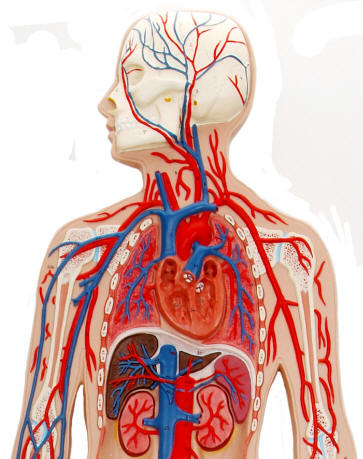What is surface area to volume ratio?
1 Answer
The surface-area-to-volume ratio or SA:V, is the amount of surface area of an organism divided by its volume.
Assume that you are a spherical cell. Then
This says that the bigger you get (
This is important if you depend on diffusion through your cell wall to obtain oxygen, water, and food and get rid of carbon dioxide and waste materials.

As you get bigger it becomes more difficult for substances to diffuse to and from your centre.
Then you must either divide into two smaller cells or change your shape.
You can be long and thin like nerve cells

or flat like a red blood cell.

If you are a large plant cell, you may develop a large central vacuole that pushes your organelles closer to your cell wall where they can get better access to the resources.

If you are a large, multicellular organism like a human, you will have to develop elaborate transport systems such as lungs and blood vessels to carry substances to the inner parts of your body.


